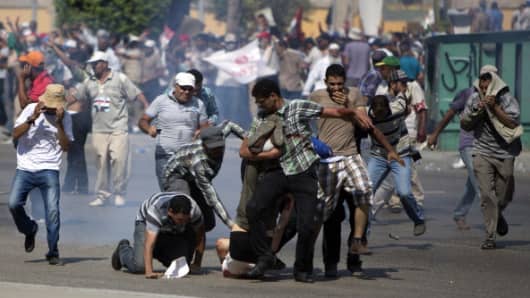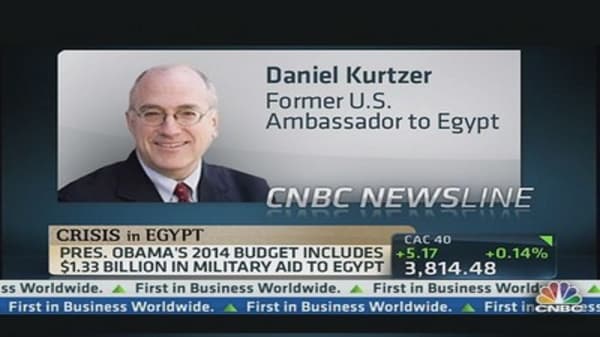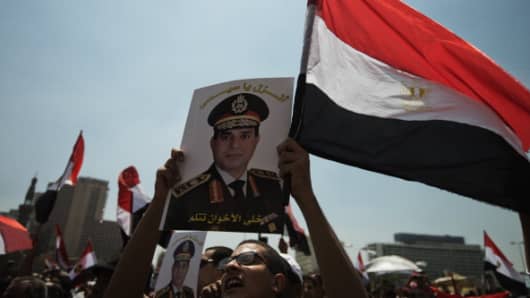About 15 people were injured during clashes between Egypt's military and supporters of Mohammed Morsi Friday outside the barracks where the ousted Islamist president is believed to be detained.
The wounded people were being treated by medical staff at the scene for what appeared to be injuries from shotgun blasts. NBC News journalists saw people with injuries to their face and torso.
The violence broke out after about 6,000 people who had been protesting outside Cairo's Rabia al Adawiya Mosque marched toward the Republican Guard headquarters, where Morsi is rumored to have been held since being deposed by the military.
BBC News correspondent Jeremy Bowen said on Twitter that he could see a "bloodied dead body." NBC News could not confirm any fatalities.
Jeremy Bowen






